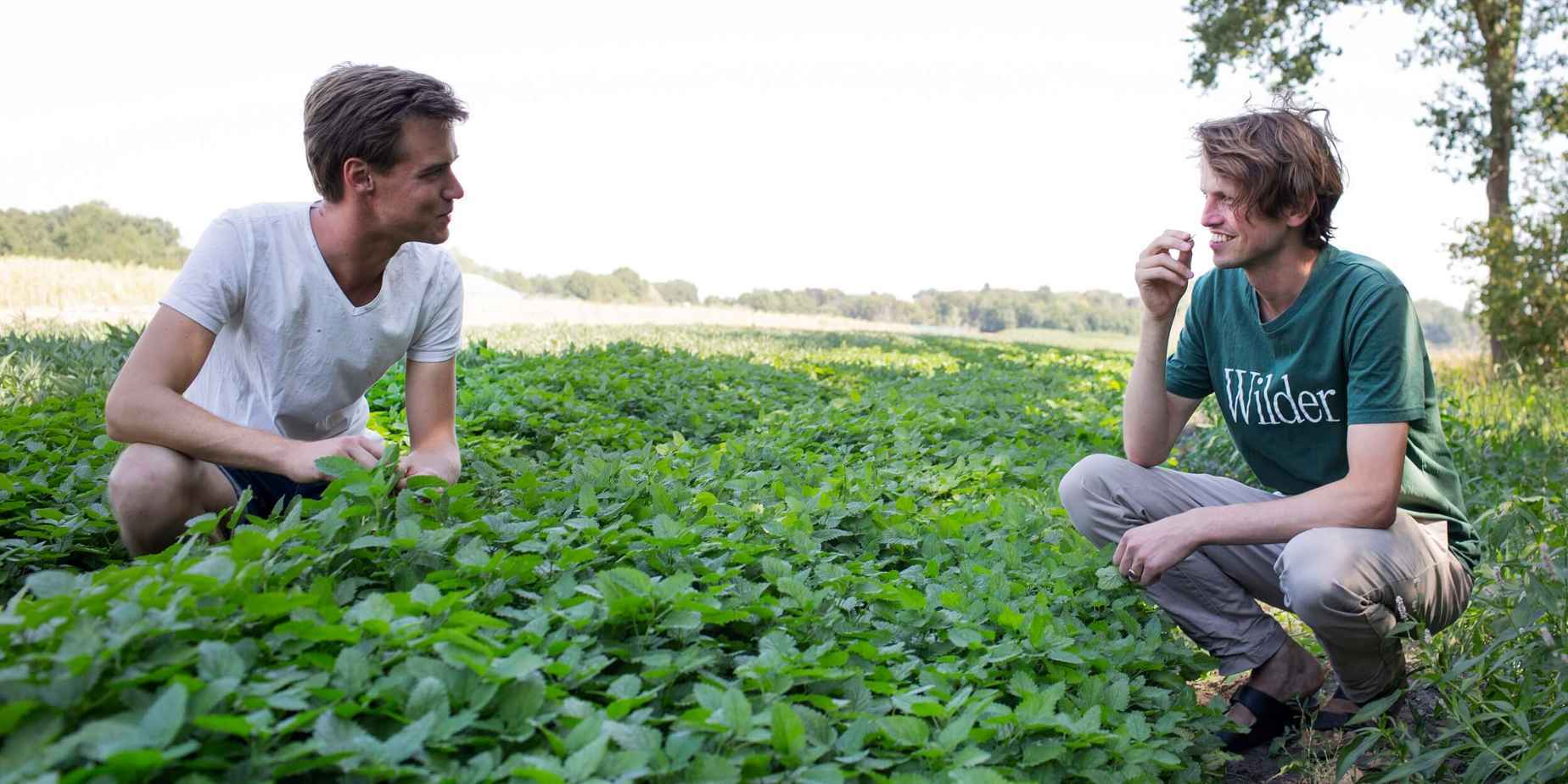"Is that fireweed growing among the mint? Great!” Matthijs Westerwoudt steps eagerly through the field in Etten-Leur, like an inventor examining the results of his experiment. Have the sown herbs taken hold? Yes! He can see yarrow, chicory and sage growing in neat strips next to each other. Ready for tea blends from Wilder Land with names like Opkicker and F***ing Fresh. The other half of the herbs are left in the ground for insects and animals.
Matthijs studied psychology and his colleague Daan van Diepen business administration, and both find nature "really cool". They wanted to do something to boost biodiversity. "Discussions with ecologists showed that more herb-rich grassland would help, and farmers told us that they could use an additional source of income. They often regard herbs as weeds. When we found out that tea herbs almost always come from abroad, we decided to build a revenue model around those 'weeds' to produce tea. This will ensure continued investment in biodiversity, not just until a grant expires."
The herbal tea concept is attracting a striking number of young farmers who want to do things differently from their parents. Ivar van Dorst of Ekoto farm is one of them. "My parents used to grow three crops here, now I have 30 different crops, including 15 varieties of beans. They think I’m crazy." Ivar wanted to plant a flower strip, but couldn’t get the funding. Through various channels, Wilder Land approached him. He points to his strips of beans and yarrow, next to a mobile pig pen. "I am making interesting discoveries about crop combinations. Broad beans suffer from aphids, but the yarrow for the tea appears to attract their natural enemy. It is full of ladybirds." Matthijs: "That’s brilliant!"
Regenerative Unilever
Wilder Land deliberately offers their teas through the catering industry and their website, and not through supermarkets. "Supermarkets want it as cheaply as possible and often on sale. That would mean a choice to exploit either the farmer or nature, or both." At Wilder Land, a kilo of dried herbs fetches between €5 (such as dandelion) and €25 (for example, rose petal). "Demonstrating that there is a practical alternative, that is our activism. Very often, farmers tell me how happy they are to see birds and insects on their land again."
With herbal tea, Wilder Land offers pioneering farmers like Ivar extra income, but mainstream farmers also know where to find Matthijs and Daan. For example, one normal dairy farmer has planted a tea hedge: a variation on farm hedges with elderflower and gale bushes. Another one started out with a mixed strip. "That is an achievable first step. We can see what grows well on a particular piece of land and the farmer gets a purchase guarantee," explains Matthijs. At that farm, lime blossom now lines the driveway, and walnut trees are on their way. "We are going to make pesto using the walnuts. Tea is just the beginning. We are doing granola, nut butter, syrup, iced tea, beer, pasta..."
So there is no shortage of growth ambitions. Matthijs : "Ultimately, we want to become a regenerative Unilever. The bigger we grow, the better it is for nature! What company can say that?"






